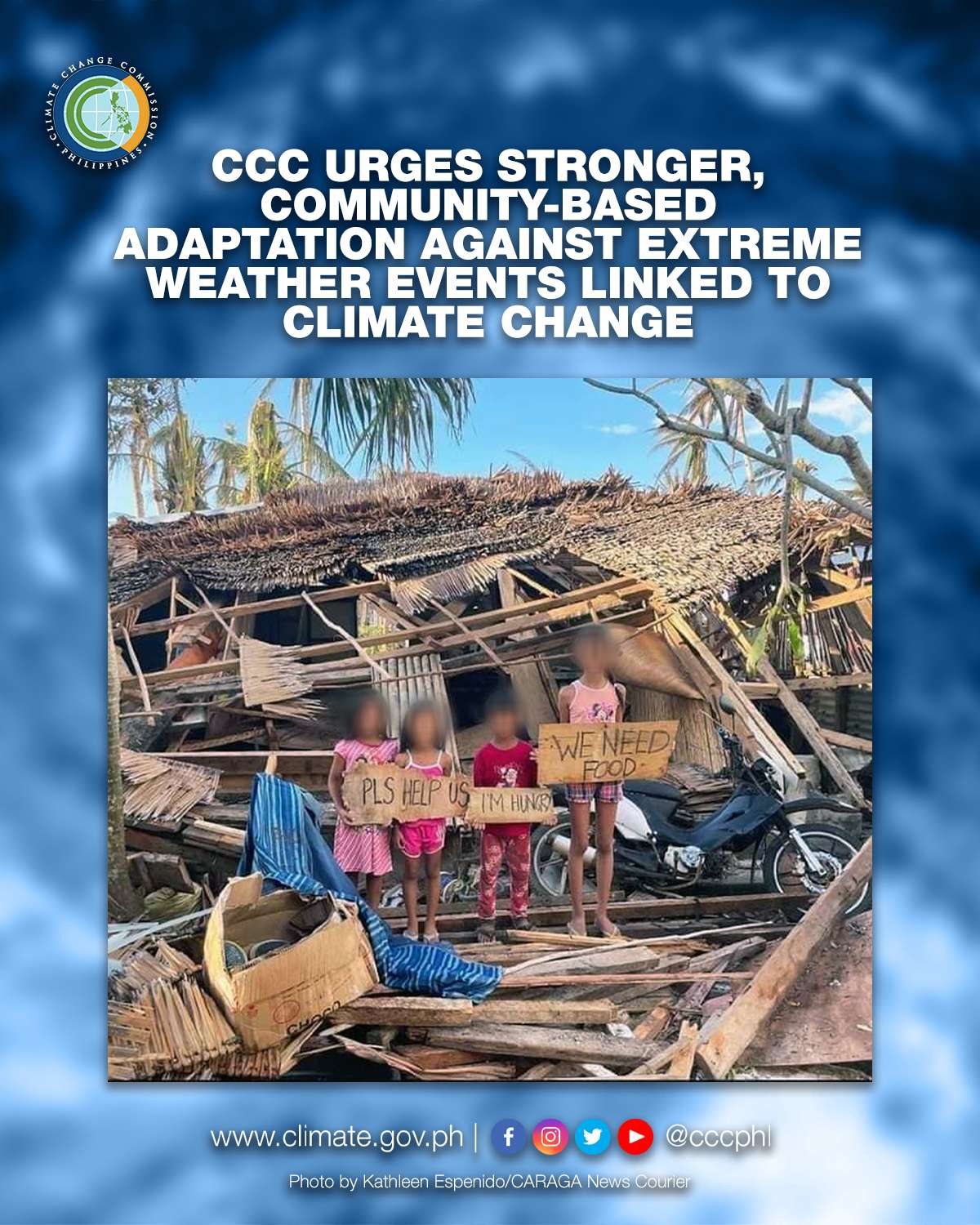
December 21, 2021 Tuesday

MANILA, 22 December 2021 — Following the onslaught of Typhoon Odette (international name: Rai) in central Philippines, the Climate Change Commission (CCC) urged to strengthen adaptation actions at the local level in order to build community resilience against extreme climate-related events and minimize loss and damage.
In the latest report by the National Disaster Risk Reduction and Management Council (NDRRMC), Typhoon Odette affected 1.1 million Filipinos in 3,238 barangays, claimed 156 lives, and incurred damages to houses, infrastructure, and agriculture amounting to PHP390,587,949. The typhoon also cut off power, water, and communication lines. At least 12 cities and municipalities were declared under a state of calamity.
Along with other tropical cyclones experienced by many Filipinos as the strongest in their lifetime, Typhoon Odette is a stark reminder of how extreme weather can destroy entire towns and cause the suffering of millions in several hours of landfall.
Odette flattened houses and damaged critical infrastructure including airports, municipal halls, and evacuation centers, toppled electric posts and telecommunication towers, and crippled energy supply and the delivery of critical services.
As the level of global warming continues to increase, these extreme weather events and other climate impacts are becoming severe, and may be irreversible, threatening to further set back our growth as a nation. The rise in temperature intensifies the water cycle, bringing more intense rainfall and associated flooding, as well as more intense drought in many regions.
As stated by the Intergovernmental Panel on Climate Change in their 6th Assessment Report released in August 2021, “it is likely that the global proportion of category 3-5 tropical cyclone instances and the frequency of rapid intensification events have both increased globally over the past 40 years”.
National agencies and local government units must have stronger consideration of climate science in crafting policies and implementing projects and programs for our most vulnerable regions, as well as for companies, businesses, and households to be more aware of the specific climate risks and hazards in their area. A systems-wide transformation is essential to climate-proof our future and will entail a shift in every aspect of planning and investing for development.
In order to adapt to the intensifying effects of climate change, as part of long term recovery and rehabilitation, the climate body and its National Panel of Technical Experts raised the following points:
Building the capacity of our local governments and communities to understand climate-related risks and hazards and therefore prepare and implement climate and disaster action plans with systems redundancy to save lives and minimize loss and damage;
Raising the minimum standards in building homes and critical infrastructure to withstand strong winds from extreme weather events, as well as creating green spaces within urban infrastructures that can help mitigate floods;
Improving early warning systems by providing impact-based forecasting that is more understandable and actionable for communities in order to prepare and heed call for evacuation before calamities strike, especially for those residing in high-risk areas;
Conducting nationwide regular typhoon preparedness and response drills similar to those for earthquakes;
Adopting a "sister cities and municipalities" program for exchange of urgent relief and assistance between two or more towns;
andTranslating climate information into knowledge products and further integrate climate action into our education curriculum across all levels.
As the country reels from the aftermath of Typhoon Odette, the Commission underscored the non-negotiable goal of the Paris Agreement to limit global warming to 1.5 degrees Celsius—our climate threshold for survival.